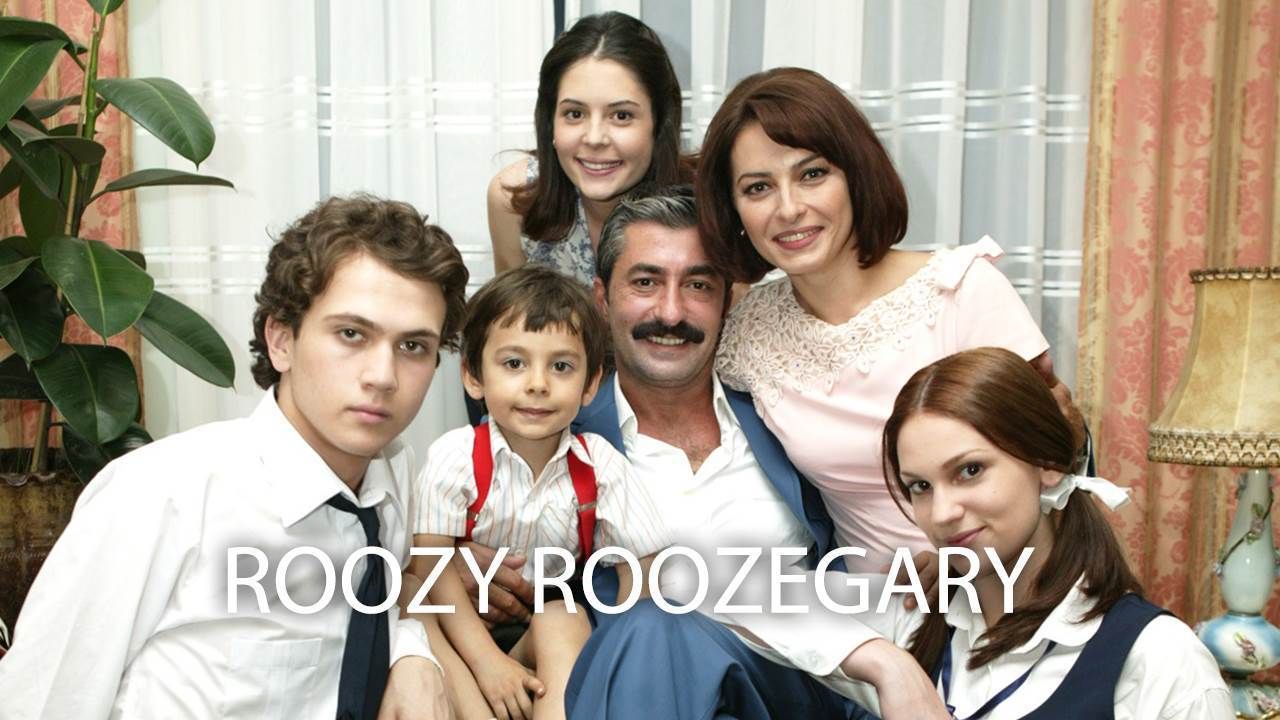Time Goes By Drama Review: “Time Goes By” (original title: “Öyle Bir Geçer Zaman Ki”), a Turkish drama series that aired from 2010 to 2013, is a poignant exploration of family dynamics, societal changes, and personal growth set against the backdrop of Turkey’s tumultuous historical events. Created by Mehmet Akif Alakurt and directed by Zeynep Günay Tan, the series stars Ayça Bingöl, Erkan Petekkaya, Aras Bulut İynemli, and Wilma Elles. This drama captivated audiences with its rich narrative, complex characters, and emotional depth, making it a significant cultural phenomenon in Turkish television.
Plot Overview
“Time Goes By” spans several decades, beginning in the 1960s and extending into the late 20th century. The story revolves around the Akarsu family, whose lives are irrevocably changed by personal and political upheavals.
The series begins with Ali Akarsu (Erkan Petekkaya), a seafaring captain, returning home from a long voyage. His wife, Cemile (Ayça Bingöl), and their four children – Berrin, Aylin, Mete, and Osman – eagerly await his return. However, the family’s happiness is short-lived as Ali’s affair with Caroline (Wilma Elles), a Dutch woman he met during his travels, comes to light. This betrayal sets off a chain of events that deeply affects each family member.
As Ali leaves Cemile for Caroline, Cemile is left to pick up the pieces and support her children. The series meticulously portrays the struggles and triumphs of each family member as they navigate personal hardships, societal expectations, and political turmoil. The narrative is interwoven with significant historical events in Turkey, providing a rich context that enhances the storytelling.
Themes and Cultural Context
“Time Goes By” explores several themes that resonate deeply with its audience, including the impact of infidelity, the resilience of family, personal growth, and the interplay between personal lives and historical events.
- Impact of Infidelity and Betrayal: The series begins with the theme of betrayal, as Ali’s infidelity shatters the Akarsu family. This theme is explored in depth, highlighting the emotional and psychological impact of betrayal on family members. Cemile’s journey from a devoted wife to an independent, resilient woman underscores the long-lasting effects of infidelity.
- Resilience of Family: Despite the upheavals, the Akarsu family’s bond remains strong. Cemile’s unwavering dedication to her children and their collective resilience in the face of adversity is a central theme. The series portrays the strength of familial love and support, emphasizing the importance of unity and perseverance.
- Personal Growth and Transformation: Each family member undergoes significant personal growth throughout the series. From Cemile’s transformation into a strong, independent woman to her children’s journeys of self-discovery and maturity, the series highlights the importance of personal growth and the potential for change.
- Interplay Between Personal Lives and Historical Events: “Time Goes By” is set against the backdrop of significant historical events in Turkey, including political upheavals, economic changes, and social transformations. The series effectively intertwines these events with the personal lives of the characters, providing a broader context that enriches the narrative.
Character Analysis
- Cemile Akarsu: Ayça Bingöl delivers a powerful performance as Cemile, the matriarch of the Akarsu family. Cemile’s journey from a betrayed wife to a pillar of strength and resilience is central to the series. Bingöl’s portrayal captures the emotional depth and complexity of Cemile’s character, making her a compelling and inspirational figure.
- Ali Akarsu: Erkan Petekkaya plays Ali, whose infidelity sets off the central conflict of the series. Ali’s character is complex, embodying both charm and deep flaws. Petekkaya’s performance highlights Ali’s internal struggles and the consequences of his actions on his family.
- Berrin Akarsu: Yıldız Çağrı Atiksoy portrays Berrin, the eldest daughter, whose journey reflects the social and political changes in Turkey. Berrin’s activism and personal struggles provide insight into the challenges faced by young people during this period.
- Aylin Akarsu: Farah Zeynep Abdullah plays Aylin, whose tumultuous love life and personal growth are central to the narrative. Aylin’s character embodies the search for identity and self-worth amidst familial and societal pressures.
- Mete Akarsu: Aras Bulut İynemli’s portrayal of Mete, the musically talented son, is both heartwarming and tragic. Mete’s journey highlights the impact of familial discord on youth and the healing power of music and creativity.
- Osman Akarsu: Emir Berke Zincidi plays young Osman, whose perspective provides a poignant and innocent view of the family’s struggles. Osman’s character grows significantly throughout the series, symbolizing hope and resilience.
- Caroline: Wilma Elles’ Caroline is more than just the other woman; her character adds complexity to the narrative, representing the allure and consequences of forbidden love. Elles’ performance captures Caroline’s manipulative yet vulnerable nature.
Visual and Cultural Representation
Set in Istanbul and other parts of Turkey, “Time Goes By” uses its locations to enhance the narrative. The contrast between the Akarsu family’s modest home and the opulent settings associated with Ali and Caroline’s affair underscores the social and emotional divides within the story. The series’ meticulous attention to historical detail in costumes, settings, and cultural practices provides authenticity and immerses viewers in the period.
The cinematography is notable for its use of light and shadow to reflect the characters’ emotional states and the evolving dynamics within the family. The series’ visual storytelling is complemented by a carefully curated soundtrack that evokes the era and enhances the emotional impact of key scenes.
Cultural elements are woven throughout the series, showcasing Turkish customs, family dynamics, and societal norms. The depiction of traditional family values, the importance of honor and reputation, and the societal changes occurring during the period provide a rich cultural context that grounds the drama in a relatable setting.
Social Impact and Reception
“Time Goes By” received widespread acclaim for its engaging storyline, strong performances, and exploration of complex emotional and societal issues. The series resonated deeply with viewers, particularly in its portrayal of family resilience and personal growth amidst adversity. Cemile’s character, in particular, became a symbol of strength and empowerment for many viewers.
The show’s success can be attributed to its relatable themes and its ability to address universal issues within a specific cultural context. The series sparked conversations about family dynamics, the impact of infidelity, and the importance of resilience and personal growth. It also highlighted the interplay between personal lives and historical events, providing viewers with a broader perspective on Turkey’s social and political changes.
The performances of the lead actors, particularly Ayça Bingöl and Erkan Petekkaya, were widely praised. Their chemistry and the emotional depth of their portrayals added significant weight to the series, making it a compelling watch for audiences.
Criticism and Controversy
Despite its popularity, “Time Goes By” faced some criticism. Some viewers and critics felt that the series occasionally relied on melodramatic elements and clichéd plot devices. The intensity of the family’s struggles and the numerous dramatic twists were seen by some as overly sensational.
Additionally, the portrayal of certain characters and their actions, particularly Ali and Caroline, sparked debate about the moral implications and the depiction of infidelity. Some critics argued that the series sometimes portrayed Ali and Caroline’s affair in a sensational manner, potentially glamorizing their actions.
The series’ focus on personal and family drama occasionally overshadowed its broader social and political commentary, leading to criticisms that it did not fully explore the systemic issues related to the historical events it depicted. The balance between dramatic storytelling and historical context was a recurring point of contention.
Conclusion
“Time Goes By” (Öyle Bir Geçer Zaman Ki) stands out as a significant Turkish drama that combines a compelling narrative with rich character development and cultural insights. Through its exploration of family dynamics, personal growth, and the interplay between personal lives and historical events, the series offers a nuanced portrayal of complex human emotions and societal issues.
The show’s impact extends beyond its entertainment value, prompting discussions about family resilience, the impact of infidelity, and the importance of personal growth and transformation. Cemile’s journey from a betrayed wife to a pillar of strength serves as an inspiring narrative of empowerment and resilience.
In summary, “Time Goes By” is more than just a television series; it is a cultural phenomenon that has left a lasting impression on its audience. Its blend of drama, historical context, and emotional depth makes it a significant contribution to Turkish television and a valuable case study for those interested in the intersection of media and societal issues. Through its intricate storytelling and portrayal of universal themes, “Time Goes By” remains a memorable and impactful drama that continues to resonate with viewers.










+ There are no comments
Add yours